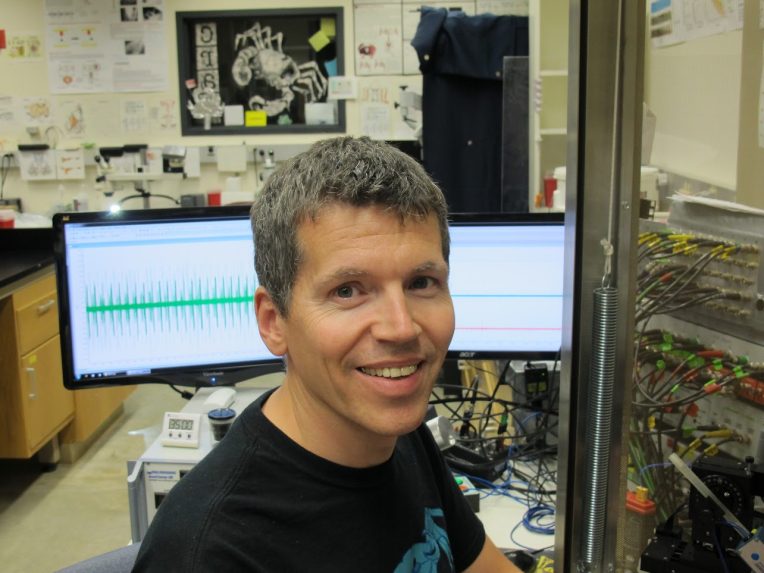Dr. Wolfgang Stein, professor of neurophysiology, is one of seven international researchers who are recipients of the Neurobiology and Changing Ecosystems Kavli Exploration Awards. The awards, which total $3.7 million, will fund three different projects pursuing investigations into how nervous systems may enable organisms, such as crustaceans, cephalopods, and zebrafish, to adapt to environmental challenges that may have influences on neurophysiology and behavior.
The warming ocean and extreme weather events like heatwaves put marine animals at risk, including decapod crustaceans, which are crucial for coastal ecosystems. These creatures undergo complex life cycles, and their nervous systems are vital for functions like heartbeat and sensing their surroundings. Stein and Steffen Harzsch at the University of Greifswald (Germany) aim to understand how different species of crustaceans adapt and respond to changing temperatures throughout their lives, from larval development to adulthood. The researchers will study both local and invasive species as well as intertidal and deep ocean species to discover what features of neutral systems confer resilience to temperature fluctuations and how their nervous systems cope with climate change-inducted challenges.
“Dr. Stein’s research is incredibly timely given the clear effects of climate change on essentially all organisms; it is imperative that we learn as much as we can about how they respond to this environmental challenge,” said Dr. Rachel Bowden, director of the School of Biological Sciences. “I am very pleased that the Kavli Foundation recognized the merits of this work—it is a well-deserved honor for Dr. Stein.”
Stein received his Ph.D. in biology from the University of Kaiserslautern in 1998. From 1998 to 1999 he was a postdoctoral fellow in the biological cybernetics laboratory of Dr. Hulk Cruse at the University of Bielefeld, before starting a postdoc with Dr. Michael Nusbaum at the University of Pennsylvania Medical School. In 2012, he accepted an assistant professorship in the School of Biological Sciences at Illinois State University, where he received tenure in 2015 and was promoted to full professor of neurophysiology in 2019. In 2023, he was named an Outstanding University Researcher.
The Kavli Foundation was established in 2000 by Fred Kavli, a Norwegian-American entrepreneur and champion of science, with a vision to advance science for the benefit of humanity.

